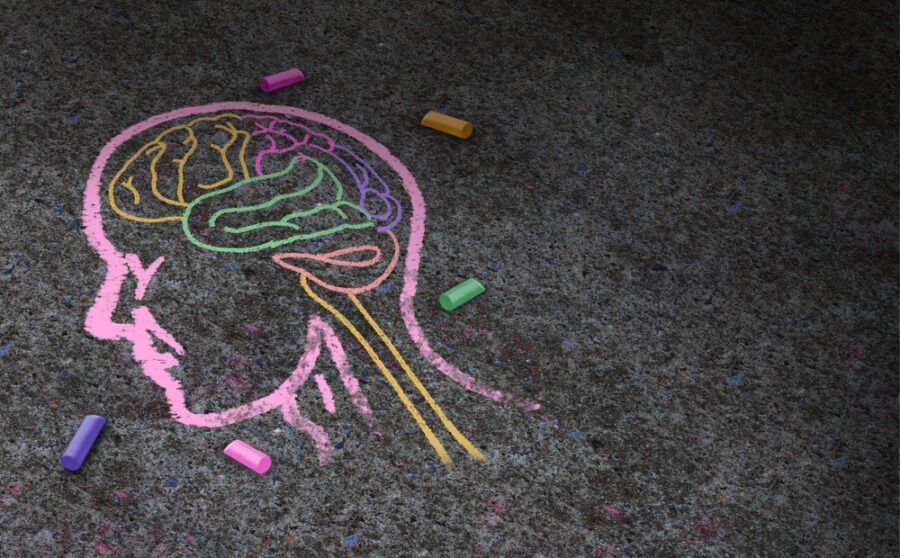Neurodevelopmental conditions like deficit hyperactivity disorder (ADHD) and autism spectrum disorder (ASD) are generally childhood diagnoses consisting of overlapping symptoms. Medical guidelines have recently changed to allow for simultaneous diagnosis of both conditions in the same child. Studies suggest that 50-70% of autistic children also have ADHD.
Domains Affected by ADHD & ASD
When comorbidity of ADHD and ASD occurs, the symptoms of both disorders are more pronounced. Particularly evident in the teenage years when ADHD and ASD tend to peak due to the social pressures of that time of life. Evaluations of children and teenagers for ASD and ADHD should pay close attention to the following domains significantly affected by the co-occurrence of these disorders.
Cognitive Processing
Autistic individuals with ADHD may struggle with assessments that include cognitive elements, such as:
- sustained attention
- immediate memory requirements, like matching
- response inhibition, such as stopping a task that has been started
Emotion Regulation
This skill set helps individuals express, identify, and modify feelings impacted by ADHD and ASD. Emotional management can cause additional psychological conditions, including depression or anxiety. An important facet of emotion regulation is the recognition of emotions in others, which may lead to awkwardness in social relationships for those with ASD and ADHD.
Executive Function
Executive function includes impulse management, completing directed actions, maintaining task-related information, and attention shifting between tasks. People with autism and ADHD struggle with executive function, particularly in working memory and inhibition.
Motor Control
ADHD and autism inhibit motor skill development. Both disorders impact movement patterns; fidgeting is a hallmark of ADHD, while repetitive motions are common with ASD. Individuals dealing with both disorders may experience issues with posture, coordination, and both gross and fine motor skills. Those individuals should undergo an assessment of motor skills due to a high probability of developmental coordination disorder.
Sensory Processing
Comorbidity of ADHD and ASD impact an individual’s process sensory information, and research shows extreme sensitivity to sound. Recommended intervention should include relaxation techniques to assist individuals with learning to manage sensory responses.
Socialization Adaptive Skills
ADHD and ASD create issues with adaptive behaviors, which are skills required for daily functioning at school, at home, or at work. Younger children with ASD and ADHD demonstrate the most difficulty with these tasks. Adaptive skills associated with socialization present the most trouble for autistic people with ADHD, specifically with the following spontaneous actions:
- joint attention: the ability to align focus with another’s
- communication reciprocity: the ability to carry on conversations
- social flexibility: the ability to adapt to changing situations
- imitation: the ability to understand and duplicate others’ expressions, movements, or vocalizations
Understanding ASD and ADHD presentation in co-occurring situations are critical to developing effective treatment plans for affected individuals To learn more about identifying autism spectrum disorder and attention deficit hyperactivity disorder, including overlapping symptoms and conditions, check out the assessment tools and resources available at WPS.
More Stuff For Your Inspiration:
- No Related Posts
Related posts
Categories
- Around The World (369)
- Business (57)
- Education (9)
- Home Improvement (23)
- Humor (191)
- Inspiration (512)
- Lifestyle (21)
- Motivation (2)
- News (31)
- Photo of the Day (257)
- Photography (105)
- Technology (61)
- Travel (8)



